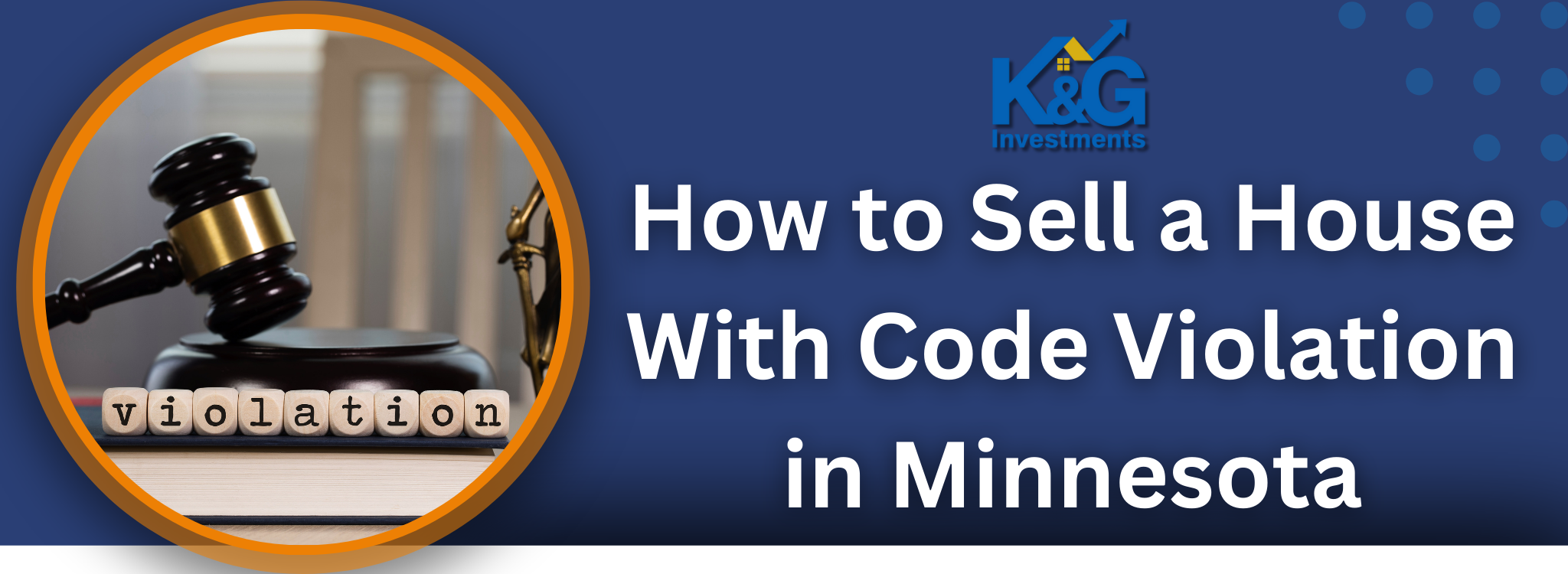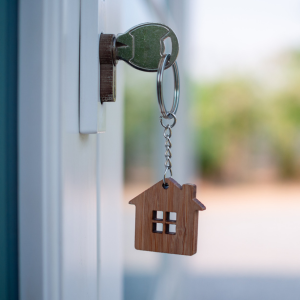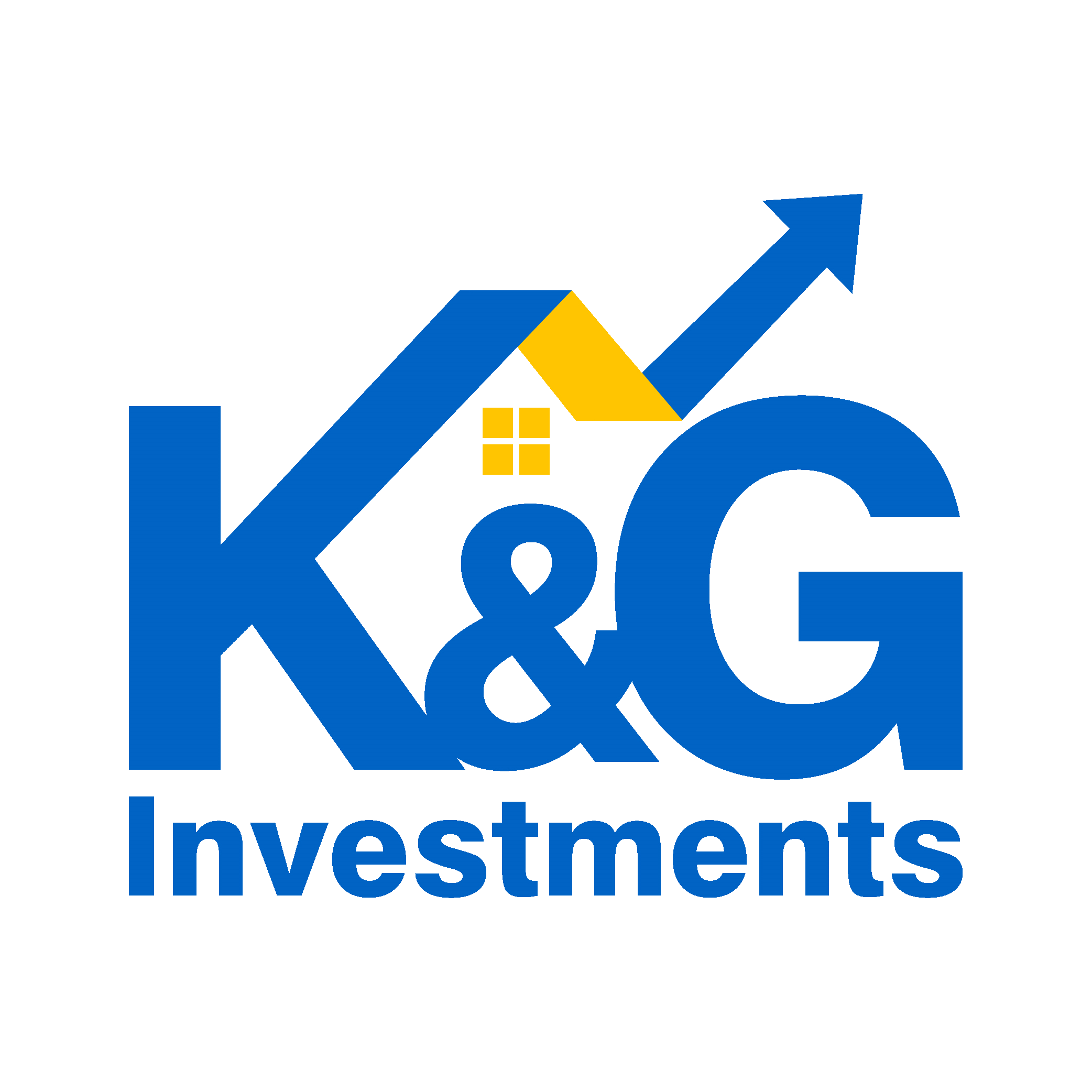
How Do Code Violations Impact the Sale of a Home in Minnesota?
Code violations in Minnesota can affect the sale of a property. These violations happen when a home does not meet local housing codes or regulations.

They impact the home’s compliance status and marketability. Knowing how these violations affect the sale helps sellers decide whether to fix them or sell the house as-is.
Can You Sell a Home with Code Violations in Minnesota?
Minnesota allows code infractions in home sales. Sellers must comply with laws. Minnesota law requires sellers to disclose code infractions to buyers. These disclosures help buyers understand risks and expenses. While selling a house with violations is difficult, some purchasers like fixer-uppers.
What Types of Code Violations Are Common in Minnesota?
In Minnesota, common code violations in homes include:
- Electrical Issues: Wiring that is not up to code or is in an outdated system.
- Plumbing violations: Leaking pipes or improperly completed installations can cause issues.
- Structural Problems: Cracks in the foundation or unapproved changes.
- Safety Hazards: Missing smoke detectors or incorrect window exits.
Following housing codes and safety standards helps avoid these issues.
Addressing Code Violations: Repair or Sell As-Is?
People whose residences violate the restrictions must choose whether to repair the issues or sell the property as is.

This decision significantly impacts the home’s valuation and sale process.
What Are the Pros and Cons of Fixing Code Violations Before Selling?
Fixing code violations before selling has its benefits:
- Increased Market Value: Repairs can raise the property’s value, attracting more buyers.
- Faster Sales Process: Homes that often comply with codes sell faster.
- Improved Buyer Confidence: Buyers are more likely to purchase a home that meets code requirements.
However, there are drawbacks, too:
- Cost Implications: Repairs can be expensive and take time.
- Uncertain Return on Investment: The seller needs help to guarantee recovery of repair costs in the sale price.
How Does Selling As-Is Affect the Selling Price?
Usually, selling a home as-is with code violations means accepting a lower price. Buyers might think the house is risky because it requires immediate repairs. This could impact the property’s market value and reduce financing options. Still, selling as-is can bring in buyers who want to find cheaper houses or start renovation projects.
For expert advice on handling code violations during a home sale, consider contacting real estate professionals such as K&G Investments for insights and strategies suited to your needs.
Essential Steps for Marketing a Minnesota Home with Code Violations
Selling a home in Minnesota with code violations can be challenging, but with the right plan, it can still work.

Start by talking to a real estate professional who knows Minnesota’s housing rules. Understanding these factors will help you know what to disclose and how the market operates.
- Understand Your Obligations: Be honest about all known code violations. Sharing this info with potential customers builds trust.
- Leverage Positive Features: Highlight the positive aspects of the home, such as its location, layout, or potential for renovation.
- Implement Targeted Marketing Strategies: Use online listings to get the word out. Post where your target audience spends time, highlighting the home’s best features and potential.
Which Marketing Strategies Work Best for Homes with Code Issues?
To market homes with code issues, focus on getting people interested and dealing with their worries.
- Online Listings: Include high-quality photos and detailed descriptions. Point out any unique characteristics or opportunities to personalize the home.
- Target Audience Engagement: Locate purchasers interested in investment properties or fixer-uppers. Show them the value they could add with renovations.
- Transparency and Disclosure: Always be upfront about code issues. This honesty helps build trust and make negotiations easier.
How to Highlight Positive Features Despite Code Violations?
You can emphasize the positives of a property to reduce concerns about code violations:
- Identify Selling Points: Consider a spacious layout, nearby schools or parks, and community amenities.
- Showcase Renovation Potential: Present the home as a potential project by using before-and-after images of similar successfully renovated homes.
- Create an Inviting Atmosphere During Showings: Keep the home clean and tidy so buyers can see its possibilities.
Should You Hire a Real Estate Professional Specializing in Code Violations?
It can be helpful to hire a real estate professional who knows about code violations:
- Expert Advice: These professionals know the details of selling homes with code issues and can give helpful advice.
- Market Knowledge: They often work with buyers looking for fixer-uppers, turning problems into opportunities.
- Agency Selection: Look for a professional with a good record of handling homes with these issues in Minnesota.
Pricing a Home with Code Violations in Minnesota
Setting the right price for a home with code issues means considering different valuation factors.

- Competitive Price Setting: Check out similar homes in Minnesota to set a fair and appealing price.
- Valuation Factors: Think about repair costs, location, and market demand. Adjust the price based on these factors.
- Monitor Market Trends: Monitor local real estate trends to keep the home competitively priced.
How to Set a Competitive Price for a Home with Code Issues?
Here’s how to set a competitive price for a home with code issues:
- Price Comparison: Do a market analysis to compare prices of similar homes with and without code issues.
- Appraisal Techniques: Get help from professional appraisers who know about homes with these challenges for an accurate value.
- Pricing Strategy: Choose a strategy that considers repair costs and leaves room to negotiate.
What Factors Influence the Pricing of Such Properties?
Many factors affect how you price homes with code violations:
- Market Demand: If there’s high demand in the area, you might ask for a higher price even if the home needs repairs.
- Location Value: Great locations can lessen the impact of code violations on the price.
- Repair Costs: Figure out how much it will cost to fix the home and include this in your pricing plan.
For more personalized help, consider working with experts like K&G Investments, which specializes in real estate transactions involving code violations.
Understanding Legal and Regulatory Requirements in Minnesota
If you want to sell a house in Minnesota, you need to know the applicable laws and rules. Property code issues in Minnesota can significantly affect sales, so sellers should know them.

It’s essential to know Minnesota’s real estate rules and zoning laws to follow the rules and stay out of trouble. Knowing this helps buyers fix any problems with their property before putting it on the market.
What Legal Obligations Must Sellers Fulfill Regarding Code Violations?
Sellers in Minnesota must disclose any known code violations. The obligations of sellers include giving clear property disclosures to inform buyers about current issues. In Minnesota, the law requires transparency to ensure an ethical transaction. Sellers also need to understand buyers’ rights to a fair deal. Moral standards should guide the selling process, especially when dealing with violations.
How Do Minnesota State Laws Affect Sales with Code Violations?
Minnesota contract law sets specific rules for selling properties with code violations. Understanding state housing codes is crucial to handle any potential permit issues. The state’s laws offer home buyer protection, ensuring buyers are informed and safe from unexpected legal problems. Sellers should consult legal professionals to manage these challenges.
What Documentation Is Required When Selling with Code Violations?
Selling a property with code violations requires specific paperwork. Necessary documents include the deed transfer, which must list any violations.

Working with a reliable title company in Minnesota can help manage the closing process with code issues. Sellers should follow a pre-sale checklist to complete necessary steps like repairs and disclosures before closing.
Disclosure Requirements for Code Violations in Minnesota
Minnesota law requires strict disclosure requirements for selling property. Sellers must share any known code violations that might affect the property’s value or use. Complete property disclosures reduce legal risks and build trust between the seller and buyer. The Minnesota residential code explains these requirements, so sellers must know what to disclose.
How Important Is Full Disclosure to Potential Buyers?
Full disclosure is key to building trust and ensuring a smooth transaction. Sellers should know their obligations, while buyers have rights protected by inspections and due diligence. Issues found during home inspections can affect buying decisions, so transparency is vital. In Minnesota, buyer inspections are an essential part of the home-buying process.
What Risks Are Associated with Nondisclosure?
Not disclosing known violations can lead to serious risks, including legal trouble and a damaged reputation. Ethical considerations require honesty in real estate deals. Failing to disclose code violations breaks Minnesota home buyer protection laws and could lead to penalties. A knowledgeable home buyer in Minnesota can help meet these obligations and avoid problems.
Financial Implications of Selling a Home with Code Violations
Selling a home with code violations can make the process more challenging, especially regarding financing options for buyers and sellers.

Knowing these implications is essential for handling the selling process in Minnesota.
How Do Code Violations Affect Financing Options for Buyers and Sellers?
Code violations can significantly affect the financing options available. Properties with these problems might have a lower market value, making it harder to get credit. Lenders may think these homes are risky and put tighter loan requirements in place. Sellers might have to lower their prices or offer fixed credits to get people to buy.
Can Buyers Obtain a Mortgage for a Property with Code Violations?
People who want to buy a house with code issues might have trouble getting a mortgage. Before giving loans, many lenders have strict requirements that houses must meet. Lenders may require proof that the problems have been fixed before they finalize the mortgage. So, the only type of loan that might be available is a renovation loan, which includes money for fixes that need to be done.
What Financial Resources Are Available for Sellers Facing Code Violations?
Sellers dealing with code violations need financial resources to repair costs or negotiate sales terms. Options include:

- Home Equity Loans: Use existing home equity for repairs.
- Personal Loans: Obtain a personal loan for repair expenses.
- Negotiating Repair Credits: Offer buyers credit towards repairs in the sale agreement.
- State Assistance Programs: Some Minnesota programs may provide financial help for code violations.
Negotiation Strategies When Selling in Minnesota
Effective negotiation strategies are crucial when selling a property in Minnesota with code violations. Understanding local market conditions and comparable property prices helps set a realistic price. To build trust with buyers, sellers should highlight their property’s benefits and be honest about violations.
How to Effectively Negotiate with Buyers Aware of Code Violations?
Successful negotiation requires openness and flexibility. Key tactics include:
- Highlight Potential: Discuss the property’s value and potential after fixing code issues.
- Communicate Clearly: Keep open communication so buyers fully understand the violations.
- Offer Incentives: Provide repair credits or price reductions to offset code compliance costs for buyers.
What Role Do Code Violations Play in Price Negotiations?
Code violations significantly influence price negotiations by affecting the home’s perceived value. Buyers often use these violations to argue for a lower purchase price.

Engaging in an informed discussion can help manage expectations and reach a fair sales price adjustment, considering the cost of fixing the issues.
Considering these factors helps sellers handle the complexities of code violations and improve their selling strategy.
Consulting with real estate professionals at K&G Investments can provide valuable expertise for individual situations.
Closing the Sale of a Minnesota Property with Code Violations
Closing the sale of a property with code violations in Minnesota can be tricky, but it’s doable. The closing process with code issues needs some critical steps to meet state rules. When transferring the deed, tell the buyer about any existing violations to avoid legal problems later. A title company in Minnesota will check for undisclosed liens or claims on the property. Understanding Minnesota contract law is crucial because it outlines how these deals should be managed appropriately.
What Steps Are Involved in Finalizing the Sale?
Understanding state housing codes and adhering to the Minnesota residential code are important steps to take. Here are some key guidelines:
- Property Inspection: Examine the property to find any code violations.
- Full Disclosure: Tell potential buyers about all known issues.
- Negotiation: Be ready to negotiate repair terms or adjust the price.
- Legal Documentation: Fill out all paperwork correctly and follow state laws.
How to Ensure a Smooth Transaction Despite Existing Code Violations?
To keep the transaction smooth, consider these factors:
- Home Buyer Protection: Address buyers’ concerns about the property’s condition.
- Legal Aspects of Selling with Code Violations: Talk to legal experts to ensure you follow Minnesota’s legal requirements.
- Ethical Considerations: Be transparent throughout the process to build trust and avoid disputes.
Expert Guidance: When to Seek Professional Help
Knowing when to get professional advice is essential. Advice from Minnesota realtors gives insights into current market trends and what buyers expect.

Working with investors in Minnesota who focus on distressed properties can also offer other solutions. Minnesota homeowner resources can provide guidance and help during the selling process.
How Can Real Estate Experts Assist in Selling Properties with Code Violations?
Real estate experts are very helpful in this process:
- Home Buyers Minnesota: An experienced home buyer can create good marketing plans for properties with code violations.
- Marketing a Problem Property Minnesota: Promote potential improvements and the neighborhood’s benefits to attract buyers.
- Selling Distressed Properties Minnesota: Offer flexible showing times and pricing options to appeal to more people.
What Type of Professional Advice Is Beneficial During This Process?
Many professionals can help during the sale:
- Dealing with Contractors Minnesota: Partner with trustworthy contractors to determine the cost and feasibility of repairs.
- Renovations Impact on Pricing: Know how repairs can affect the sale price and negotiate accordingly.
- Property Disclosures Minnesota: Ensure all disclosures are complete and correct to avoid legal troubles later.
Following these guidelines and using expert resources will help sellers effectively handle the challenges of selling a Minnesota property with code violations. Talk to specialists who know local real estate laws and practices for personalized advice.
FAQs:
How can I sell my Minnesota home with code compliance issues?
Selling a house with code violations in Minnesota can be challenging, but you have options. First, an inspection determines the specific violations. Decide if you want to fix these issues to make the property more attractive. If not, consider selling as-is to investors who buy these types of homes. Be honest about any problems the house has.
What is property code enforcement, and how does it affect my home sale?
Property code enforcement makes sure buildings are safe and healthy. Not following these rules can make it harder to sell your home because it might turn buyers away or make financing difficult. Fixing these problems before you sell can help you get a better price.
Are there investors who specialize in buying Minnesota homes with code violations?
Some investors look for homes with code violations and buy them at lower prices. They usually fix them up to rent or sell later. Working with real estate pros to find trustworthy buyers for these kinds of sales is a good idea.
What steps should I take before selling a house with code enforcement violations?
Start with an inspection to find all code issues. Decide if you want to fix them or sell the house as-is. If you choose to sell as-is, get repair estimates to show buyers. Always be clear about any issues with potential buyers to avoid legal trouble.
How do code violations influence the sale price of a house in MN?
Code violations often decrease a home’s market value because buyers factor in repair costs. However, fixing these issues can make your home more appealing and increase its sale price. Talk to a local real estate expert to see how this affects your property.
What are the common types of code violations in Minnesota homes?
Code violations include electrical and plumbing problems, structural damage, and unapproved building changes. These can pose safety risks and impact the sale process. Regular maintenance and inspections can help prevent these issues.
Can I sell my home quickly despite code issues?
Yes, selling fast is possible if you target cash buyers or investors who like fixer-uppers. Show the property’s potential and good location to attract interest. A house buyer with experience in these sales can help speed up the process.
Should I consult an expert before listing a home with code violations?
Yes, talking to a real estate attorney or professional who knows local laws and market conditions is smart. They can help you handle the challenges of selling a home with code issues and ensure everything goes smoothly.
Key Insights
- Understanding Code Compliance: Knowing about code compliance and violations, like fire and safety rules, is important when selling your house in Minnesota. Working with inspectors can help fix these problems.
- Evaluating Property Condition: Find and fix code violations such as broken faucets or unsafe wiring before selling. This can reduce risks and make your property more appealing to cash buyers.
- Cost-Effective Solutions: Look for inexpensive ways to bring your property up to code. DIY fixes might help, but talking to professionals ensures everything is checked properly.
- Financial Implications: Think about how unresolved violations affect home equity and taxes. Selling quickly might attract investors who are okay with some risks.
- Community Engagement: Know the local rules and the state’s minimum housing standards to meet community expectations and improve neighborhood prospects.
- Legal and Contractual Considerations: Be honest about any code issues. Work with experts to make sure everything is clear in contracts and submit required documentation correctly.
- Resource Availability: Use resources like city maps to find specific code infractions and community centers for help with compliance obligations.
- Expert Consultation: Work with experienced people in the Minneapolis real estate market to find solutions, like connecting with Jason or other investor networks, for selling challenging properties efficiently.
This information applies to Minnesota and its cities, including Minneapolis, St. Paul, Minnetonka, Plymouth, and more. For more details, please call us at (612) 400-8070 or visit our website at K&G Investments.
Additional Resources For Minnesota Sellers


